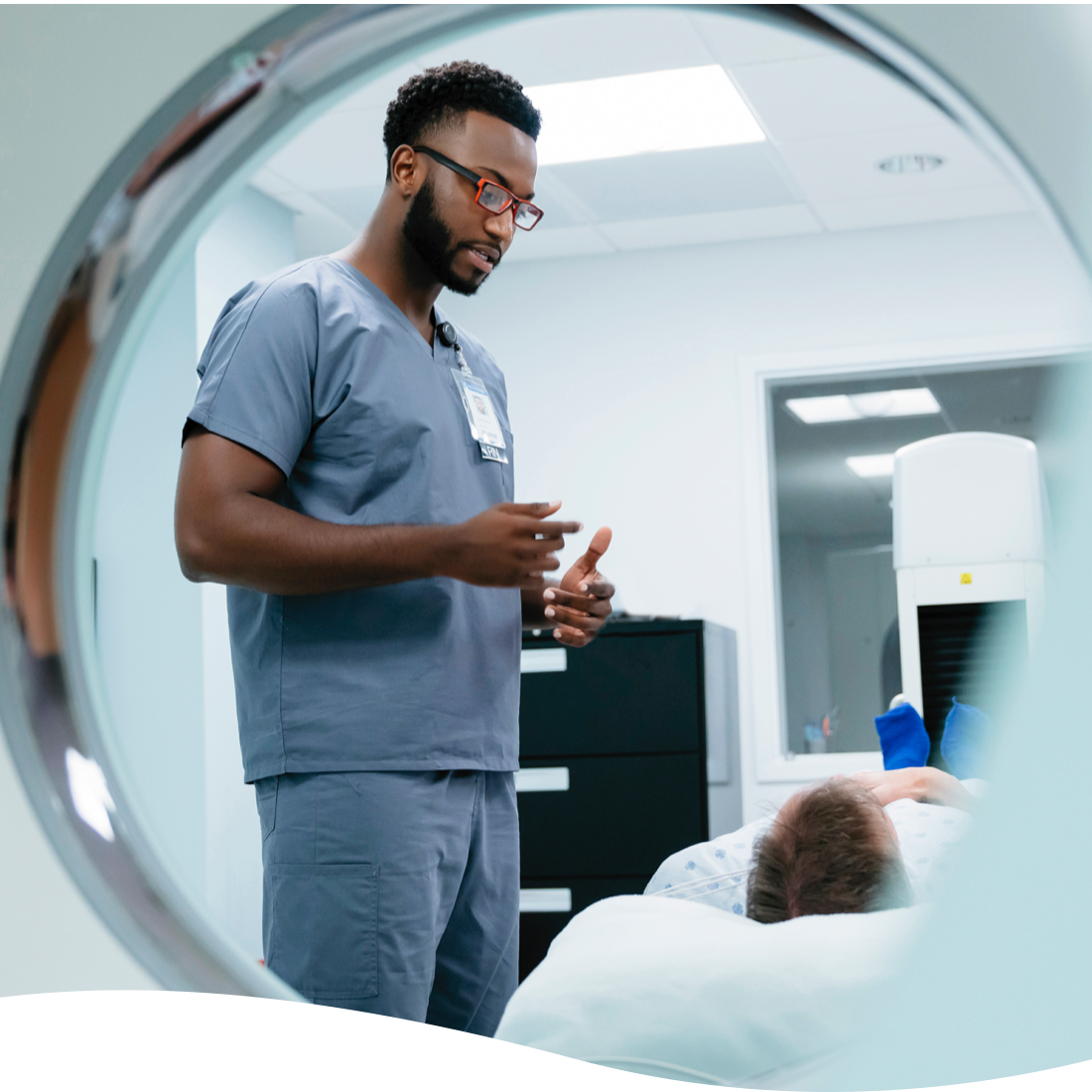
We treat neurological conditions with comprehensive care.
The brain, spinal cord and nerves comprise your nervous system, a complex network responsible for sensory information and bodily functions, including breathing, walking, learning and much more. When this complex system malfunctions — causing health conditions such as stroke, epilepsy, Parkinson’s disease and movement disorders — our neurologists provide diagnoses and treatment options using the latest tools and techniques. We aim to minimize the impact of neurological conditions on your daily life with comprehensive care tailored to your unique needs.
Conditions and Services
Conditions
Our neurology expertise keeps you close to home for a wide range of conditions, including:
- Brain tumors
- Dementia, including Alzheimer’s disease
- Epilepsy
- Gait and balance disorders
- Headaches, including migraines
- Multiple sclerosis
- Parkinson’s disease and tremor
- Seizure disorders
- Stroke
- Vertigo and dizziness
Services
To identify the underlying cause of your neurological condition, one or more of the following diagnostic tests may be performed. Most of these procedures can be scheduled as an outpatient if your health is stable.
This X-ray test uses an injection of dye or contrast to examine blood vessels of the organs, head, neck, arms or legs. It will identify artery narrowing or blockages, including the location and extent of both. The contrast facilitates a clearer view of your blood vessels.
This medical imaging technique provides cross-sectional X-ray images that are combined to create a 3D representation of internal structures. The scanner rotates around the patient, taking multiple images from different angles.
Electrodiagnostic tests evaluate the electrical activity of muscles and nerves to aid in the diagnosis of various conditions that affect the nervous system. These tests, such as electromyography (EMG) and nerve conduction velocity (NCV), help identify nerve damage, the cause of damage and/or how well your nerves are responding to treatment.
An EEG measures electrical activity in the brain using small, metal discs called electrodes that are attached to your scalp. Brain cells communicate via electrical impulses, creating wavy lines on an EEG recording that reflect brain activity.
EP studies measure the electrical activity in areas of your brain and spinal cord in response to applied stimuli. In combination with other testing, EP studies are used to diagnose certain neurological conditions. The tests record how quickly and completely nerve signals reach your brain to find damage along the nerve and brain pathways.
MRI is a non-invasive scan that uses a large magnet and radio waves to produce detailed images of almost every internal structure in the human body, including organs, bones, muscles and blood vessels. Colquitt Regional’s 3T MRI allows for more detailed images, faster scans and improved diagnoses, particularly helpful for neurological conditions.
This diagnostic imaging test uses contrast dye and X-rays or CT scans to capture detailed images of your spinal canal, spinal cord and nerve roots. It is instrumental in identifying issues such as spinal stenosis, herniated discs or tumors compressing the spinal cord or nerve roots.
Also known as brain sonography, this non-invasive imaging technique uses high-frequency sound waves to create images of the brain and spinal cord. It is an important tool in assessing the central nervous system, particularly in neonates and infants, and can help to detect conditions such as brain injury, tumors and vascular abnormalities.
This nuclear medicine imaging technique uses radioactive tracers to visualize your body’s metabolic processes. It helps your physician assess organ and tissue function, detect cancer and monitor the effectiveness of treatment.
This medical procedure uses a needle inserted into the lower back to collect cerebrospinal fluid that surrounds the brain and spinal cord. Analysis of the fluid can help diagnose neurological conditions such as meningitis, subarachnoid hemorrhage and other central nervous system disorders.
Ultrasound is a safe and non-invasive imaging technique that uses high-frequency sound waves to create images of your organs and tissues. It is commonly used to diagnose and monitor a variety of medical conditions, including pregnancy, heart problems and blood clots.
Stroke Care
A stroke happens when blood flow to the brain is blocked or reduced, depriving it of oxygen and nutrients. This can cause brain cells to die within minutes, so quick treatment is crucial to limit damage and complications.
Recognizing stroke symptoms and acting fast can save lives. Remember FAST:
-
Face: Ask them to smile, does one side droop?
-
Arms: Can they raise both arms, or does one drift?
-
Speech: Is their speech slurred or strange?
-
Time: Call 911 right away if you see any of these signs.
If a stroke occurs, we offer immediate imaging and expert neurologic care, plus rehab services like physical and speech therapy. Many strokes are preventable. Our neurologists can assess your risk and help you take steps to reduce it.

Locations
Providers
Advanced Neurological Care Starts Here
Whether you’re managing migraines, seizures or complex neurological conditions, our expert team is here to help. Contact us for more information.




